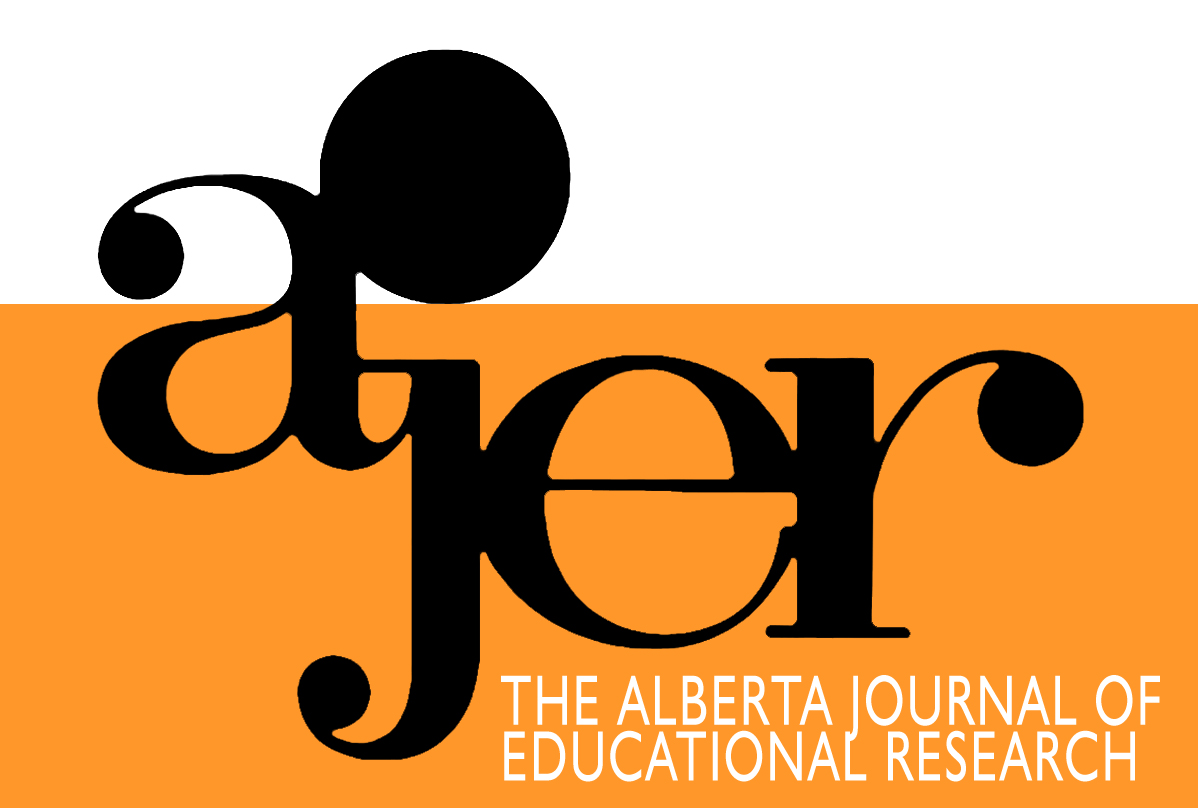When Truths Collide: Christian Privilege Undermines Freedom of Identity in Canadian Public Schools
DOI:
https://doi.org/10.55016/ojs/ajer.v68i1.71322Abstract
The conflict between freedom of religion and freedom of identity and expression in schools remains a controversial topic internationally. As primarily socializing agents, schools reproduce the cultural norms of the communities within which they are embedded. When schools are situated in environments with high levels of religiosity that are non-affirming to gender and sexually diverse youth, the impact is felt within the lived curriculum of individual students. Using narrative inquiry, this study explored this impact and student perceptions of how freedom of religion became a means to justify discrimination and oppression of sexual and gender diverse students and promoted feelings of insecurity and isolation amongst this marginalized group.
Key words: Christian privilege; freedom of religion; gender and sexual minority; secondary schools
Le conflit entre la liberté de religion et la liberté d'identité et d'expression dans les écoles demeure un sujet de controverse à l'échelle internationale. En tant que principaux agents de socialisation, les écoles reproduisent les normes culturelles des communautés dans lesquelles elles sont intégrées. Lorsque les écoles sont situées dans des environnements à haut niveau de religiosité qui ne sont pas favorables à la diversité sexuelle et de genre des jeunes, l'impact est ressenti dans le curriculum vécu de chaque élève. En utilisant une enquête narrative, cette étude a exploré cet impact et les perceptions des élèves sur la façon dont la liberté de religion est devenue un moyen de justifier la discrimination et l'oppression des élèves sexuellement et sexuellement différents et a favorisé les sentiments d'insécurité et d'isolement parmi ce groupe marginalisé.
Mots clés: privilège chrétien ; liberté de religion ; minorité sexuelle et de genre ; écoles secondaires
Downloads
Published
Issue
Section
License
UNIVERSITY OF ALBERTA COPYRIGHT LICENSE AND PUBLICATION AGREEMENT
If accepted, authors will be asked to sign a copyright agreement with the following points:
A. Where there is any inconsistency between this Copyright License and Publication Agreement and any other document or agreement in relation to the same subject matter, the terms of this Agreement shall govern.
B. This document sets out the rights you are granting in relation to publication of your article, book review, or research note entitled (the “Article”) through inclusion in the academic journal titled Alberta Journal of Educational Research (the “Journal”) published through the Faculty of Education, representing the Governors of the University of Alberta (the “Journal Editor”).
C. There will be no payment to you for this publication and grant of rights. In consideration of the agreement to publish the Article in the Journal:
1. You are warranting that:
- the content of the Article is your original work, and its content does not contain any material infringing the copyright of others; or, where the Article is not entirely your original work, you have obtained all necessary permissions in writing to grant the rights you are giving in this agreement;
- the content of the Article does not contain any material that is defamatory of, or violates the privacy rights of, or discloses the confidential information of, any other person;
- the Article has not been published elsewhere in whole or in part, and you will not allow publication of the Article elsewhere without the consent of the Journal Editor;
- the names of all co-authors and contributors to the Article are:
2. You agree to license the copyright in the Article to the Journal Editor, on a worldwide, perpetual, royalty free basis; and to the extent required by the terms of this agreement. You shall retain the right at all times to be acknowledged as the/an author of the Article.
3. You further agree that the Journal Editor has the entitlement to deal with the Article as the Journal Editor sees fit, and including in the following manner;
- The right to print, publish, market, communicate and distribute the Article and the Journal, in this and any subsequent editions, in all media (including electronic media), in all languages, and in all territories, ing the full term of copyright, and including any form of the Article separated from the Journal, such as in a database, abstract, offprint, translation or otherwise, and to authorize third parties to do so;
- The right to register copyright of the Journal;
- The right to edit the Article, to conform to editorial policy as the Journal Editor sees fit.
4. If any co-author or contributor to the Article does not sign this agreement, the Journal Editor reserves the right to refuse to publish the Article.



